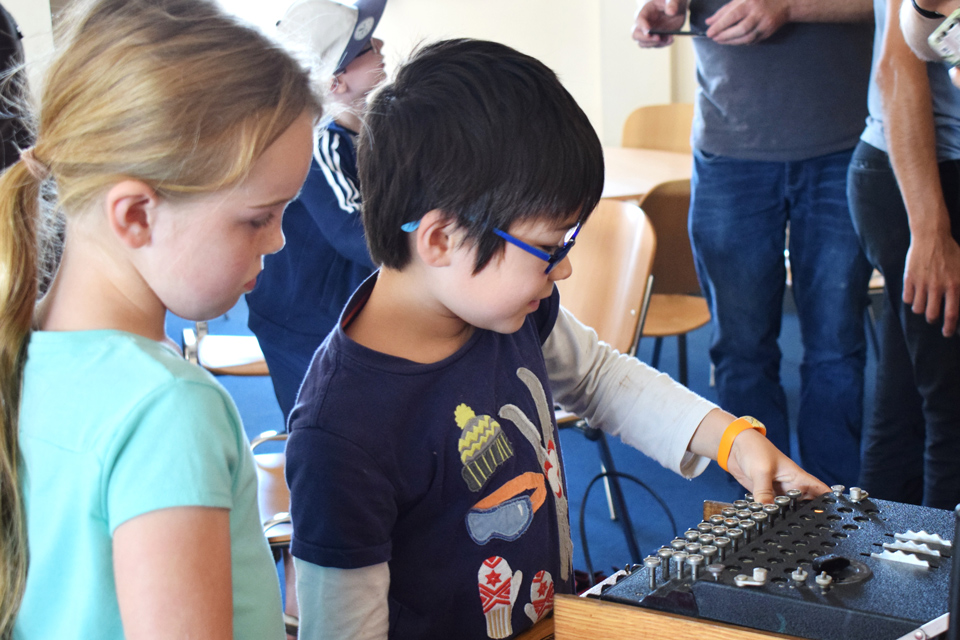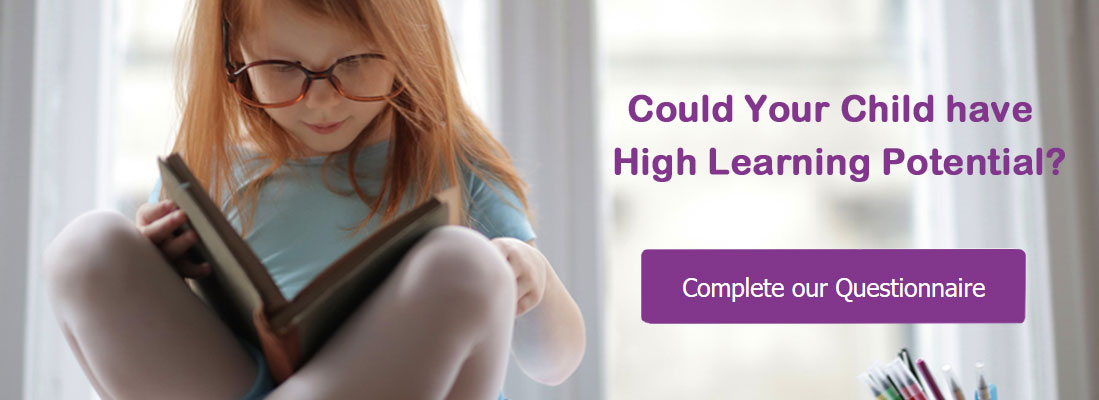Families - Get Started
Just getting started in your journey of parenting a child with high learning potential?
Follow the links to pages of information to help you learn more about what is involved and how Potential Plus UK can support you.
High Learning Potential
Potential Plus UK uses the term ‘high learning potential’ to mean the same as the term ‘gifted’. There are other terms used to mean the same things, especially in education, such as ‘gifted and talented’, ‘exceptional’, ‘more able’ and ‘most able’.
The concept of what it means to be intelligent varies across different contexts and cultures, but the term ‘gifted’ or ‘high learning potential’ most often refers to an ability to understand information well, make quick analyses and use memory capacity to learn quickly. This ability is useful in academic pursuits as well as high level careers and creativity. Read more about high learning potential.
Characteristics of Children with High Learning Potential
Do you have a child who is intense, curious, learns rapidly, has a vivid imagination, reasons well, shows great compassion and concern for others? These are some of the potential characteristics shown by children with high learning potential.
There are many different definitions of high learning potential and giftedness, most of which are based on cognitive ability. These definitions often ignore other, common characteristics of children with high ability, such as intensity, sensitivity, perfectionism, curiosity and quirkiness, that may indicate that they need specialist support. Discover some of the more common characteristics that your child may share with others with high learning potential.
Become a Member
Potential Plus UK is a membership charity with over 50 years of unique experience, expertise and understanding of high learning potential. We offer support and practical strategies to parents and carers of children and young people aged 18 and under, with high learning potential.
We offer three types of family membership:
• Family Plus Membership
• Associate Family Member by School
• Associate Family Member by Organisation
Join us as a member to benefit from our expertise and resources
Common Difficulties for Children with High Learning Potential
The difference between the intellectual abilities of children with high learning potential and their age can lead to some commonly experienced difficulties, which include anxiety, intense emotions and hypersensitivities, perfectionism and problems with social interactions. Find out how to support your child.
Hypersensitivities in Children with High Learning Potential
One way of understanding some of the characteristics of individuals with high learning potential is to look at their ‘hypersensitivities’ or ‘overexcitabilities’. The term overexcitabilities comes from the Theory of Positive Disintegration, a personality development theory, developed by Kazimierz Dabrowski – Polish Psychologist and Psychiatrist. Find out more about how to help children who have overexcitabilities/have hypersensitivities.
Dual or Multiple Exceptionality
The term dual or multiple exceptionality (DME) is used in the UK to describe children who have both high learning potential and a special educational need through a learning difficulty or a disability. Find out what the term dual or multiple exceptionality means, the characteristics of children with dual or multiple exceptionality, common special educational needs which may be linked to DME, the common difficulties such children have and how to support the needs of children with dual or multiple exceptionality at both home and school.
How Can We Support You?
Here are just a few of the ways
Assessments for Children
Potential Plus UK is often contacted by parents wanting to understand their child’s learning profile in order to be able to support their educational, social and emotional needs. To empower parents to support their children, we offer several assessments that give recommendations based on the child’s unique profile. Visit this page to find out more about what assessments are available for children with high learning potential.
Consultancy Service
Advice Sheets and Resources
Potential Plus UK has a wide selection of resources and blogs including low-cost, interactive parent webinars, covering many of the issues likely to face parents and carers of a child with high learning potential.
Members can access all of our advice sheets and activity booklets by logging into the members area and visiting the Family Members Resources page. Non-members can download a selection of introductory advice sheets for free.










